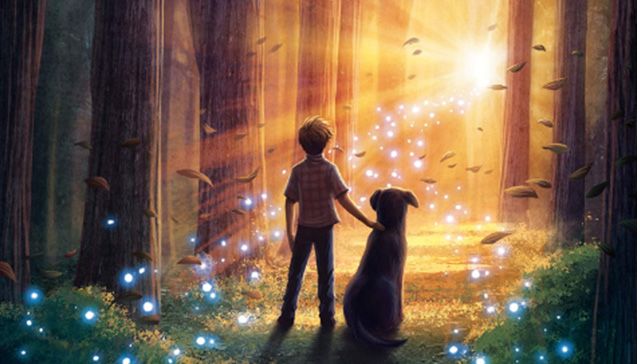Writing So Young Readers Feel Seen: A Guest Post From The Whispers Author Greg Howard

As a kid growing up out in the country in South Carolina, I knew I was different than the other boys at school. I wasn’t interested in sports, or hunting, or girls for that matter. I knew I liked boys. And though no one told me directly that it wasn’t okay to like other boys, somehow, I knew.
Debug Notice: No product response from API
I believe a big part of the reason I knew is because of the lack of queer representation in my world. Back then, I didn’t see myself represented in the books we read at school, or on the TV shows that I watched with my family, or in movies that I went to see with my friends. I didn’t see positive examples of queer love. I didn’t see any happy endings for two boys in love. So, I deduced by this omission of representation that it simply wasn’t an option, or that there was something wrong with me, or that I was the only one. Of course, I wasn’t, but the others were hiding in plain sight just as I was. We didn’t have each other to lean on because there was no safety in living our truth, no sense of community, and certainly no pride in who we were.
I believe a big part of the reason I knew is because of the lack of queer representation in my world. Back then, I didn’t see myself represented in the books we read at school, or on the TV shows that I watched with my family, or in movies that I went to see with my friends. I didn’t see positive examples of queer love. I didn’t see any happy endings for two boys in love. So, I deduced by this omission of representation that it simply wasn’t an option, or that there was something wrong with me, or that I was the only one. Of course, I wasn’t, but the others were hiding in plain sight just as I was. We didn’t have each other to lean on because there was no safety in living our truth, no sense of community, and certainly no pride in who we were.
You might say, “Things are different now. Queer representation in media and entertainment is more prevalent, people in general are more accepting, schools are more supportive. Things are better.” And yes, all those things are true. So why is it still hard for queer kids to come out?
Debug Notice: No product response from API
When I meet middle school and high school students at book festivals and events, for every positive coming out story I hear, there are five to ten other heartbreaking stories about rejection, bullying, and betrayal—especially from kids living in small country towns. They talk to me about not having the support of their families, of feeling ostracized by their classmates, or being condemned by their church community. One student at a teen book festival was so excited to have purchased my book, Social Intercourse and Becky Albertalli’s Simon vs. The Homo Sapiens Agenda only to have them confiscated by her parents when she got home.
When I meet middle school and high school students at book festivals and events, for every positive coming out story I hear, there are five to ten other heartbreaking stories about rejection, bullying, and betrayal—especially from kids living in small country towns. They talk to me about not having the support of their families, of feeling ostracized by their classmates, or being condemned by their church community. One student at a teen book festival was so excited to have purchased my book, Social Intercourse and Becky Albertalli’s Simon vs. The Homo Sapiens Agenda only to have them confiscated by her parents when she got home.
These kids cling to the self-representation they find in books. Queer stories are the salve for their wounds of fear, isolation, and despair. When they tell me how my books helped them through dark times, or made them laugh when they were depressed, or gave them hope to hang in there, or made them feel that they are not alone—that is the absolute best part of what I do.
Sometimes I get asked, “Why don’t you write books about non-queer kids?” My answer is always the same. “Because there are plenty of those books already.” And authors such as Adam Silvera, Becky Albertalli, Shaun David Hutchinson, Alex London, Benjamin Alire Saenz and many others are filling the young adult shelves with glorious queer teen representation and God bless them for it. But we still have work to do for younger readers. Never doubt that queer representation in children’s literature has the power to change and save lives.
So instead of being consumed with regret, I write. I write to show kids positive examples of queer life and love. I write so the people in their lives might learn to empathize with them. I write so they know they have allies. I write to let them know that many faith communities love and accept them unconditionally. I write to show them all the reasons they have to be proud of who they are. I write so they feel seen, so they know that they matter and that their stories have value.
But more than anything, I write to give them their happy endings.
Greg Howard’s novel The Whispers is on B&N bookshelves now.